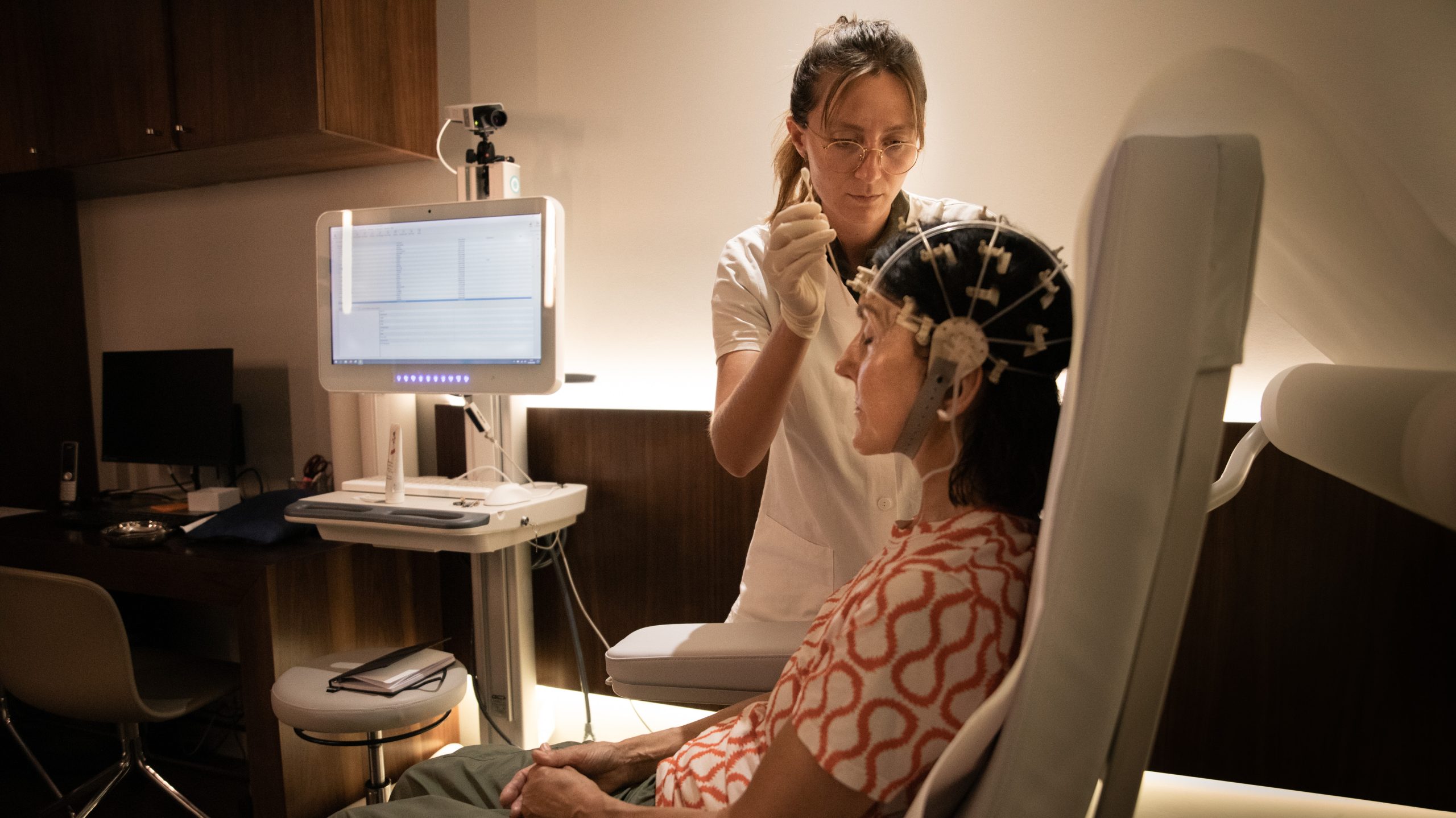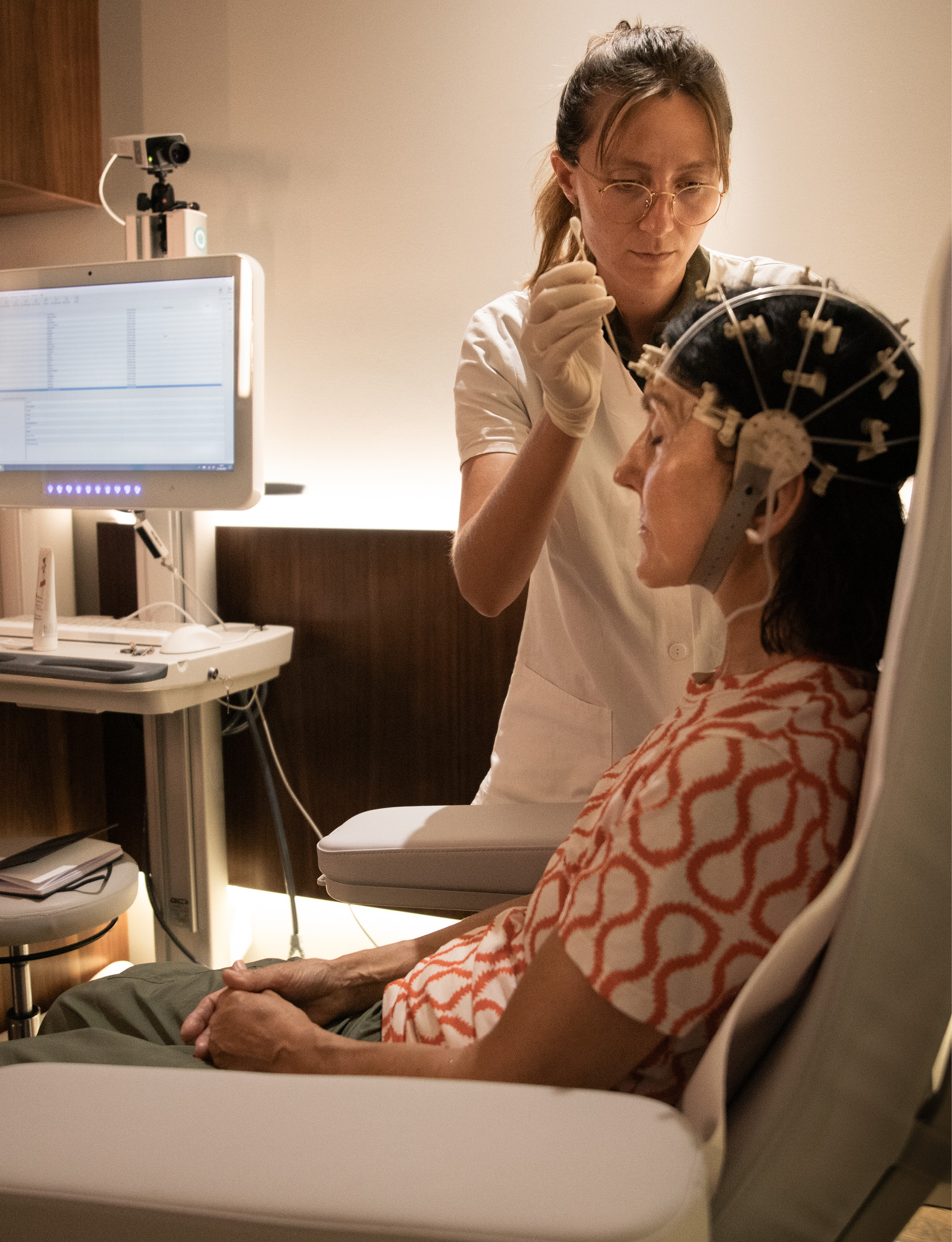


Bespoke rehabilitation centers, retreats and ‘wellness’ centers have grown in popularity as wellbeing gains more and more cultural capital. But what exactly are bespoke rehab centers, and what role does hospitality play in them? For some answers, we turned to Jan Gerber, CEO of Paracelsus Recovery…

As the CEO of one of the world’s most ‘luxurious’ rehab centers, I am often asked variations of the same three questions. Firstly, what actually is a bespoke mental health clinic? Or, more explicitly, isn’t it just regular rehab in nicer rooms? Secondly, as we only ever have one client at a time and tailor our programs specifically to that client, people often wonder: why do ultra-high-net-worth (UHNW) clientele require so much extra care and attention? And thirdly, what is the ‘function’ of bespoke accommodation and hospitality?
I will try to weave my answers into each of the points below so as to emphasize one central ethos that has governed my work and – I believe – governs any ‘worth its title’ bespoke mental health rehab center. Namely, luxury rehab has nothing to do with luxury and everything to do with client relations.
What we provide is a type of ‘medical hospitality’ which aims at ensuring our clients can heal from whatever pain brought them to us. For UHNW individuals, those stressors typically involve above-average levels of stress and isolation, which is why our programs are tailor-made (to target stress) and only focus on one client at a time (to target loneliness).
While that latter point might seem contradictory, only treating one client at a time ensures that our team can focus all of their energy on building a relationship with that client. In so doing, that client has a chance to overcome that inner isolation and reconnect with their loved ones. Not only is a multiple-person treatment center unrealistic for UHNW individuals, it often actually increases one’s sense of inner loneliness as group dynamics enter into the treatment. Hence, we believe that our ‘success’ lies in the relationship our team makes with each client.
What are bespoke treatment centers?

Bespoke rehabilitation centers provide personalized and all-encompassing treatment programs. Because of our emphasis on personalization, the quality of our infrastructure, meals, additional services, and our team’s attention to detail has to go the extra mile – much like other hospitality operations. If it doesn’t, then it cannot call itself a bespoke treatment center because – akin to how the Radisson Blu cannot call itself the Four Seasons – they operate on entirely different goals and principles.
However, the mistake people often make is their assumption that we include these ‘extras’ merely to spike rates and increase opulence. In reality, we create these personalized programs with a specific goal in mind: to ensure that each client has the best possible chance of achieving a long-term recovery.
For instance, a person will enter into a treatment center because they are in a great deal of pain and they need help managing, confronting, and overcoming that pain. It perhaps goes without saying that this process will be in and of itself difficult; but it is made even more painful when that individual does not like their room, doesn’t connect with their team, struggles to complete their task list or wake up on time, hates the food, etc.
“All of us – being but mere mortals – will do whatever we can to not confront those deep-rooted wounds within us”
In each of these situations, an external source of discomfort has entered into that individual’s treatment journey which will now distract them from their goal (looking after their wellbeing). Therapeutically, this is known as ‘resistance’ which means that all of us – being but mere mortals – will do whatever we can to not confront those deep-rooted wounds within us. We do this because when we tackle those demons, we create true change in our lives and, being a routine-seeking creature, we always lean away from change (even when it’s positive).
So, in completely personalizing each client’s treatment programs and ensuring the highest possible quality of care, we essentially minimize the risk of our client becoming distracted away from their own aim and purpose with us, which is to address those underlying stressors in their life.

At Paracelsus Recovery, we try to achieve this goal in an array of ways – for instance, each client also works with a 24/7 live-in therapist who will be available for emotional support whenever the client needs it. We also adapt our programs to suit clients’ schedules, and we adopt a ‘pragmatic humanistic’ approach to treatment, which means we meet clients where they are in their lives, instead of trying to fit them into an objective and calculated concept of ‘health’ or ‘recovery.’
Furthermore, just as there are different ‘levels’ of fine-dining or hotel experiences, there are also different ‘levels’ of bespoke treatment and care. At the top, one typically finds treatment centers which adopt the ‘one client at a time’ modality that I helped to co-create in 2008. In these centers, treatment is catered exclusively to UHNW individuals.
Why do ultra-high-net-worth clientele require their own treatment centers?
While extreme wealth and power provide a buffer from some of life’s difficulties, it also creates an impenetrable wall that keeps individuals isolated, stressed out and often in a great deal of pain. In our experience, you are nearly five times more likely to struggle with a mental health issue – particularly a dependency or depressive disorder – if you are an UHNWI.
So, firstly, these are a subgroup of people who are often in a great deal of pain and thus require care and support. However, this very fact – that wealth usually brings more problems with it than it solves – is completely antithetical to the pervasive stereotypes and stigmas about wealthy individuals. For example, as Paul Hokemeyer phrases it in his book Fragile Power, celebrities experience a fragile sense of power because it is in danger of breaking at any point, sowing the seeds for anxiety.
“Celebrities are told that if they are not happy 24/7, then they are ungrateful, and there is something wrong with them”
Furthermore, they work in one of the most toxic professional environments out there and face constant harassment, online bullying, and public stalking, to name just a few of the fame side-effects. But then, they are told that they are immeasurably lucky to achieve what they have. We almost gaslight them into thinking that this stressful life is incredible. More than that even, celebrities are told that if they are not happy 24/7, then they are ungrateful, and there is something wrong with them. Situations like these would make anyone doubt themselves and live in a state of constant fear.
Hence, UHNWI individuals often exist in a vortex where once you become successful, you are othered from the ‘rest of us.’ In its most simple definition, this means that who you become is secondary to who people think you are. For instance, imagine if the CEO of a multibillion-dollar company checked into a traditional luxury rehab center for alcohol dependency. If anyone in that center leaked it to the press, the company’s share price would plummet, and people would lose their jobs because the human being behind the job is secondary to who others think they are.
That’s why we believe UHNWI need their ‘own’ treatment centers because they require a unique kind of care and treatment which will be able to override both their own isolation and the practitioners’ underlying stigmas and biases.
At Paracelsus Recovery, we place a lot of importance on the concept of cultural competency which refers to the willingness to understand what it means to exist in the world as an ‘othered’ human being. In other words, we use our empathy and compassion to understand the alienation, loneliness, and alterity that come with a high-net-worth existence. To achieve this, we strive to remain reflective and open to learning, with the knowledge that while we are experts in our field, there are always more ways for us to grow and learn.
The client-team relationship
Finally, how does our work relate to hospitality? In my experience, for these treatment centers to actually be effective, predicting and analyzing each and every possible difficulty our clients might face – and then creating treatment programs and solutions that can avoid these obstacles – is crucial.

However, even more vital than that is the connection clients make with our team. Our clients are highly successful people who live stressful and alienating lives. Much of their pain is rooted in a deep sense of disconnection from others. At Paracelsus Recovery, transformations can occur because it allows them to transcend these worlds of self-isolation when they become part of our community.
To do that, we make sure to always have a 20:1 team-client ratio and conduct an elaborate assessment procedure from the very first moment the client arrives in Zurich. During that initial period, we then tailor a program to address every possible cause of suffering; from your emotional to psychological, physical, and even cellular health. Hence, understanding, listening, and ultimately connecting – as human beings – is at the core of our mission.
Or, in other words, hospitality lies at the heart of both our treatment method and, because of that, our client’s recovery.
- To discover more about Paracelsus Recovery, visit the website
Immerse yourself in luxury
The Executive Master’s in Luxury Management and Guest Experience from Glion offers flexible, self-paced study that allows you to sharpen your luxury business knowledge without giving up your current role.
















